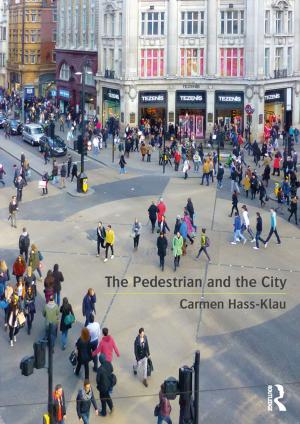Walling, Boundaries and Liminality
A Political Anthropology of Transformations
Nonfiction, Social & Cultural Studies, Social Science, Sociology| Author: | ISBN: | 9781351600804 | |
| Publisher: | Taylor and Francis | Publication: | August 6, 2018 |
| Imprint: | Routledge | Language: | English |
| Author: | |
| ISBN: | 9781351600804 |
| Publisher: | Taylor and Francis |
| Publication: | August 6, 2018 |
| Imprint: | Routledge |
| Language: | English |
Contemporary challenges related to walls, borders and encirclement, such as migration, integration and endemic historical conflicts, can only be understood properly from a long-term perspective. This book seeks to go beyond conventional definitions of the long durée by locating the social practice of walling and encirclement in the broadest context of human history, integrating insights from archaeology and anthropology. Such an approach, far from being simply academic, has crucial contemporary relevance, as its focus on origins helps to locate the essential dynamics of this practice, and provides a rare external position from which to view the phenomenon as a transformative exercise, with the area walled serving as an artificial womb or matrix. The modern world, with its ingrained ideas of borders, nation states and other entities, often makes it is very difficult to gain a critical distance and detachment to see beyond conventional perspectives. The unique approach of this book offers an antidote to this problem. Cases discussed in the book range from Palaeolithic caves, the ancient walls of Göbekli Tepe, Jericho and Babylon, to the foundation of Rome, the Chinese Empire, medieval Europe and the Berlin Wall. The book also looks at contemporary developments such as the Palestinian wall, Eastern and Southern European examples, Trump’s proposed Mexican wall, the use of Greece as a bulwark containing migration flows and the transformative experience of voluntary work in a Calcutta hospice. In doing so, the book offers a political anthropology of one of the most fundamental yet perennially problematic human practices: the constructing of walls. As such, it will appeal to scholars of sociology, anthropology and political theory.
Contemporary challenges related to walls, borders and encirclement, such as migration, integration and endemic historical conflicts, can only be understood properly from a long-term perspective. This book seeks to go beyond conventional definitions of the long durée by locating the social practice of walling and encirclement in the broadest context of human history, integrating insights from archaeology and anthropology. Such an approach, far from being simply academic, has crucial contemporary relevance, as its focus on origins helps to locate the essential dynamics of this practice, and provides a rare external position from which to view the phenomenon as a transformative exercise, with the area walled serving as an artificial womb or matrix. The modern world, with its ingrained ideas of borders, nation states and other entities, often makes it is very difficult to gain a critical distance and detachment to see beyond conventional perspectives. The unique approach of this book offers an antidote to this problem. Cases discussed in the book range from Palaeolithic caves, the ancient walls of Göbekli Tepe, Jericho and Babylon, to the foundation of Rome, the Chinese Empire, medieval Europe and the Berlin Wall. The book also looks at contemporary developments such as the Palestinian wall, Eastern and Southern European examples, Trump’s proposed Mexican wall, the use of Greece as a bulwark containing migration flows and the transformative experience of voluntary work in a Calcutta hospice. In doing so, the book offers a political anthropology of one of the most fundamental yet perennially problematic human practices: the constructing of walls. As such, it will appeal to scholars of sociology, anthropology and political theory.















